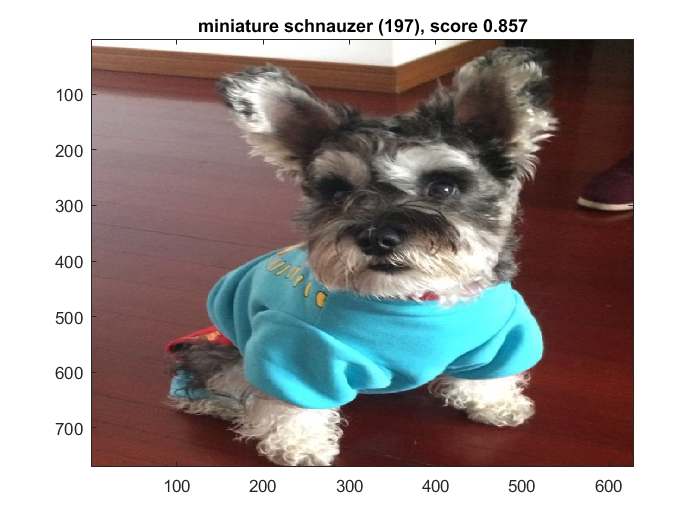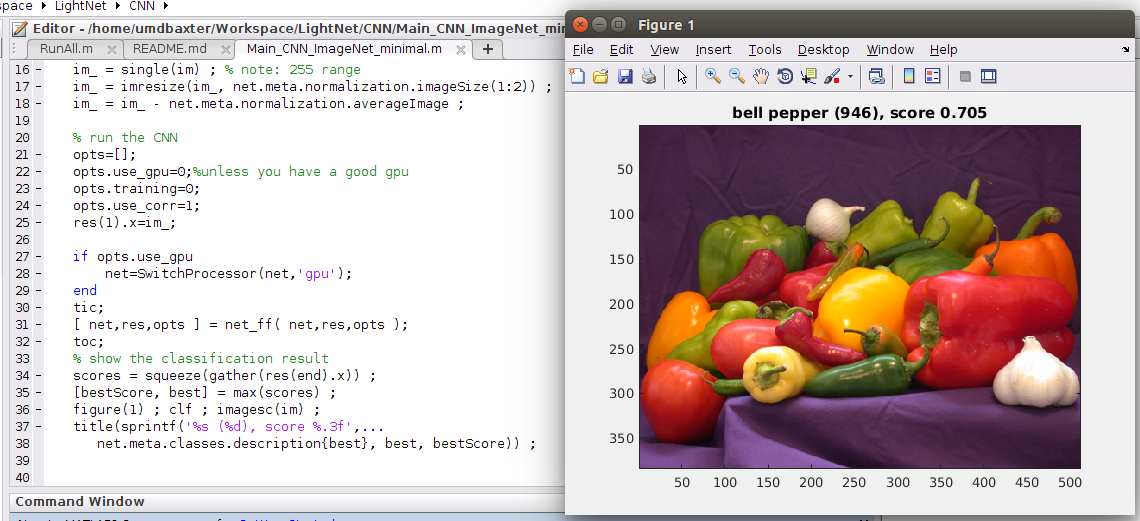Chengxi Ye, Chen Zhao, Yezhou Yang, Cornelia Fermüller, and Yiannis Aloimonos. 2016. LightNet: A Versatile, Standalone Matlab-based Environment for Deep Learning. In Proceedings of the 2016 ACM on Multimedia Conference (MM '16). Amsterdam, The Netherlands, 1156-1159. (http://dl.acm.org/citation.cfm?id=2973791)
LightNet is a lightweight, versatile and purely Matlab-based deep learning framework. The aim of the design is to provide an easy-to-understand, easy-to-use and efficient computational platform for deep learning research. The implemented framework supports major deep learning architectures such as the Multilayer Perceptron Networks (MLP), Convolutional Neural Networks (CNN) and Recurrent Neural Networks (RNN). LightNet supports both CPU and GPU for computation and the switch between them is straightforward. Different applications in computer vision, natural language processing and robotics are demonstrated as experiments.
Install the latest Matlab on a computer with an Nvidia GPU (at least 3GB GPU memory), and run the RunAll.m Matlab script.
Read the latest documentation here:
http://arxiv.org/abs/1605.02766
Have fun!
RNN (with skip links) and GRU are added to the RNN directory.
LightNet now supports using pretrained ImageNet network models.

Check CNN/Main_CNN_ImageNet_Minimal()
An example recognition using imagenet-vgg-f pretrained net:
Convolutions can be accelerated with CUDNN thanks to the work from the MatConvNet team.
adagrad: implementation of the Adagrad algorithm.
adam: implementation of the Adam algorithm.
bnorm: implementation of the batch normalization layer.
dropout: implementation of the dropout layer.
fast_conv_layer: implementation of the convolution layer.
fast_mlp_layer: implementation of linear perceptron layer.
generate_output_filename: generate output filename based on the current parameter settings.
im2col_ln: customized im2col function used in the pooling layer.
Main_Template: a template script used to train CNN and MLP networks.
lrn: implementation of the local response normalization layer.
maxpool: implementation of the max-pooling layer.
net_bp: implementation of the back propagation process which is used in CNN and MLP networks.
net_ff: implementation of the feed forward process which is used in CNN and MLP networks.
pad_data: a padding layer which is used in CNN.
relu: implementation of the rectified linear unit function.
rmsprop: implementation of the RMSProp algorithm.
select_learning_rate: implementation of the Selective-SGD algorithm that automatically selects the optimal learning rate at the beginning or in the middle of the training.
sgd: implementation of the stochastic gradient descent algorithm with momentum.
sigmoid_ln: implementation of the sigmoid layer.
softmax: implementation of the softmax layer.
softmaxlogloss: implementation of the softmax log loss layer .
SwitchProcessor: a switch function between CPU and GPU.
tanh_ln: implementation of the tanh layer.
test_net: running the network in the testing mode to evaluate the current parameters.
train_net: running the network in the training mode to evaluate and calculate the loss and gradients.
TrainingScript: a training template for CNN and MLP networks.
CUDNN can be used to calculate convolutions. You will need to compile the vl_nnconv function provided by MatConvNet team.
- Please go to http://www.vlfeat.org/matconvnet/install/ to download.
- Copy the folder 'MatConvNet_Dir/matlab' into 'LightNet_Dir/CoreModules/matlab'.
- Try to compile MatConvNet in the LightNet directory (even though we only use one convolution function).
- Set opts.use_cudnn=1 in the main tesing script.

